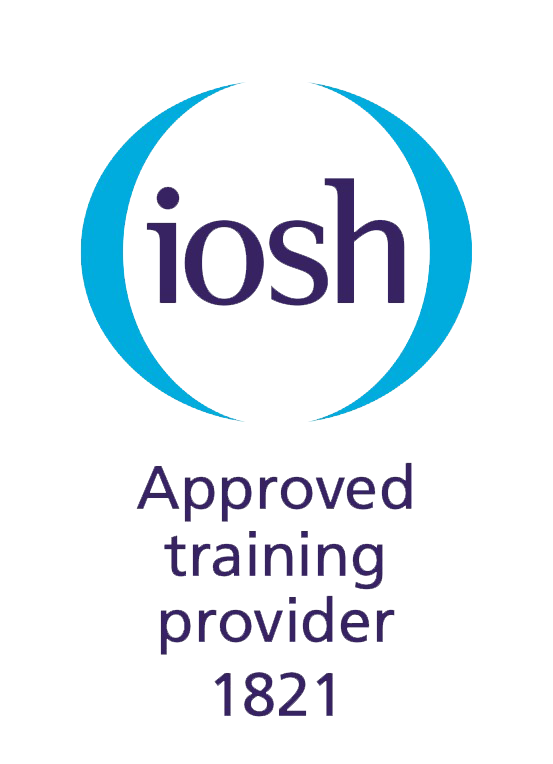NCVO’s trusted supplier for Employment Law, HR and Health & Safety
NCVO member? If you’re searching for help managing workforce matters and staying on top of health and safety compliance, look no further than WorkNest.
In addition to the one free advisory call provided as part of your membership package, NCVO members can benefit from discounted rates on WorkNest’s range of services, giving you access to an enhanced level of support, as often as you need it, for a fair, fixed price.
NCVO selected us to be a trusted supplier because:
- Our teams have a wealth of third sector experience, guaranteeing highly relevant advice
- We provide a truly personalised service, delivered by dedicated professionals
- We offer flexible solutions to accommodate the cyclical nature of charity funding

Get in touch to arrange a
FREE 30 minute chat.
Not sure what you need or want more information? Send us your enquiry and we’ll give you a call.
Free Download: Definitive Guide to General Risk Assessments
Identify Risks and keep your business compliant with this free guide.
How we help
Specialist advice and support for charities
WorkNest has provided trusted support to UK charities for over two decades.
Because of this, our team of qualified professionals understand the unique circumstances under which charities and not-for-profit organisations operate and the sorts of employment and safety-related challenges you face.
Our goal is to alleviate these pressures. From specialist advice to simple software platforms, we’re here to help you:
- maintain productive and problem-free teams;
- give you the confidence that your premises and practices are safe and compliant; and
- protect your organisation against claims and other costly mistakes, so that nothing stands in the way of achieving your charity’s objectives.
Whether you’re in need of Employment Law, HR or Health & Safety support, our fixed-fee services give you access to:
- Unlimited employee relations and risk management advice
- Legally-compliant contracts, handbooks and policies
- Bespoke document drafting
- Annual health and safety audits (General Risk Assessments)
- Easy-to-use HR, health and safety and case management software
- Interactive e-Learning courses, free for the first year
- Litigation support for Employment Tribunals
- Accident and incident investigation, plus 24/7 emergency support
- Optional Legal Expenses Insurance
- HR Consultancy for immediate issues and strategic projects
Whatever support you require and however you choose to work with us, we assign dedicated experts with relevant experience and recognised qualifications, who will get to know your organisation so they can provide the best possible support.
About WorkNest
Head-quartered in Chester with hubs throughout the UK, WorkNest has a national reputation for helping charities to fulfil governance requirements, develop their people strategy, act as a model of good employee relations, and maintain their reputation as a responsible employer.
Our services are delivered by a team of 400 highly-accomplished, experienced people, including 65 employment lawyers, 50 CIPD-qualified HR professionals and 40 qualified health and safety consultants.
- Trusted by 35,000+ organisations nationwide
- Recognised as a leading firm by The Legal 500
- Over 1,500 years’ collective experience
- 99.2% client happiness rating
As well as our impressive credentials and unrivalled expertise, charities choose WorkNest because our set-price subscription models give them access to the support they need while keeping better control over budgets.
We’re available now
To find out more about WorkNest’s range of services and the preferential rates available to NCVO members, get in touch with our team today.
Popular FAQs
How much does an Employment Tribunal cost?
Since 2017, it does not cost anything to make a Tribunal claim and that has seen the number of claims increase exponentially. If a disgruntled employee wants to make a claim against you, all they need is a laptop and a spare 10 minutes. Once that claim is submitted, you are into a process which is not easy or quick to get out of. The average compensation payment in an unfair dismissal claim is around £15,000 and legal fees can often match that. More complex case types such as discrimination can cost more, with the average award for age discrimination in 2019/20 coming in at £38,794. As a result, it makes sense to have the right support in place should you need advice, as well as Legal Expenses Insurance to cover these costs.
What is discrimination in the workplace?
The Equality Act identifies nine ‘protected characteristics’: age, disability, gender reassignment, marriage and civil partnership, pregnancy and maternity, race, religion or belief, sex, and sexual orientation. It is unlawful to treat somebody less favourably based on them having one of these characteristics, because you perceive them to have one of these characteristics (even if they don’t), or due to their association with somebody who does. This is known as direct discrimination. An example would be promoting a male employee over a more qualified female candidate. Employers must also be aware of indirect discrimination – where a policy, procedure or rule which applies to everyone has the effect that people with a certain protected characteristic are put at a disadvantage to those who don’t share it. An example would be a policy requiring staff to work on Sundays, which could indirectly discriminate against people of certain religions who cannot work on this day.
How much would a discrimination claim cost me?
There is no limit on the compensation that can be awarded in a discrimination claim. The maximum amount awarded in 2019/20 was £265,719 for disability discrimination, with an average award of £27,043. The average award for age discrimination was £38,794, sexual orientation discrimination £27,936, and sex discrimination £17,420. This isn’t including legal fees and the hidden costs relating to management time, which could easily rise to 60 to 80 hours when attendance at Tribunal as a witness is factored in. With this in mind, a claim could have a significant impact on your bottom line.
At WorkNest, we help to shield employers from this cost, both proactively through robust contracts and handbooks, pragmatic advice and Legal Expenses Insurance, and reactively through specialist Litigation support throughout the claims process.
What is unfair dismissal?
It is not enough that an employer has a valid reason to dismiss; you must also be able to demonstrate that you acted reasonably in the circumstances, otherwise the dismissal may be rendered unfair. A dismissal will be considered unfair if 1) the reason for dismissal does not fall under the scope of one of the five potentially fair reasons for dismissal, 2) the employer did not follow a fair disciplinary or dismissal process, and/or 3) the decision to dismiss was outside the range of reasonable responses open to the employer. In some cases, dismissal will be automatically unfair, if for example you dismiss someone for ‘blowing the whistle’, trying to assert a statutory right, or (as is particularly relevant during coronavirus) refusing to work due to health and safety concerns. Our Employment Law specialists can guide you through the correct processes and use their experience to advise on whether or not dismissal in any particular circumstance is likely to be within the range of reasonable responses, which is the ultimate question for the Tribunal. With the added benefit of Legal Expenses Insurance, if a claim is made and you’ve taken advice, there would be no cost to your company.
What is the Good Work Plan?
The Good Work Plan, which came into force on 6 April 2020, introduced several changes to employment law intended to improve the rights of employees and workers. Three significant changes include 1) the requirement to provide a written statement of terms on or before the first day of employment (as opposed to within two months from the employee’s start date), 2) the reference period for calculating an average week’s pay for holiday purposes is now 52 weeks (rather than 12), and 3) the requirement to provide additional information within the Contract of Employment, including normal working hours, benefits and sick pay entitlement.
Our Employment Law specialists can review your contractual documentation to make sure it’s fit for purpose and reflects these changes, and if not, revise your contracts or provide you with carefully crafted new ones.
What are the risks of not having the right contracts in place?
Failing to provide an employee with a contract could lead to additional compensation being awarded to an employee who successfully makes another sort of claim against their employer. In addition, a number of practical problems could be caused by having incorrect contracts, such as paying too little (or too much) notice, getting holiday entitlement wrong and failing to protect legitimate business interests in the face of an employee leaving for a competitor.
Do I need a written disciplinary procedure?
All employers should have a clear disciplinary procedure, in writing, which should be made available to all employees. This will set out the standards of behaviour is expected from your employees, what constitutes acts of gross misconduct, what the disciplinary procedure involves, what possible sanctions can be imposed, and the appeal process. By laying out this information, having a disciplinary procedure will give employees less scope to argue that they weren’t aware of the rules, promote consistency in approach when dealing with these issues, and help you to avoid and defend claims.
What should I include in a letter inviting an employee to a meeting to discuss absenteeism?
The letter should contain all the information you wish to rely on during the hearing, so perhaps a copy of the employee’s attendance record, copy of doctors’ notes and/or other medical evidence, and copies of the minutes from return to work meetings. The letter should also state the possible outcome of the meeting, for example a first written warning for poor attendance.
Is sickness an unauthorised absence?
Unauthorised absences are absences that employees do not have a contractual right or the employer’s permission to take. While staff should stay at home if they are sick, it is reasonable to expect employees to notify their employer at their earliest convenience if they will not be able to attend work. This will typically be laid out within the employer’s sickness absence policy. In this way, while an employee is within their rights not to work when they are ill, if they fail to inform their employer in the way outlined in the policy, this may qualify as an unauthorised absence and may lead to disciplinary action.
How has employment law changed during coronavirus?
The coronavirus pandemic has changed the employment relationship in many ways, creating numerous challenges for employers. We’ve seen entirely new concepts of law develop: self-isolation, shielding, furlough, flexible furlough, Job Support Schemes and now an extended furlough scheme. Government guidance has been any combination of piecemeal, contradictory and last minute. It has been incredibly challenging for our Employment Law experts to stay abreast of all these changes, so it must be almost impossible for business owners. Our free Coronavirus Advice Hub was born out of a desire to pull all the different bits of guidance together and break it down into easily digestible chunks for employers. It epitomises what our Employment Law team does best, delivering pragmatic and commercial advice to help employers solve their people problems.
How large does my business need to be for health and safety legislation to impact me?
Health and safety legislation applies to all business regardless of size or sector, and all employers have a duty to ensure that health and safety is effectively managed within the workplace. This duty extends to both employees and any non-employees that may be affected by your activities – including clients, visitors and members of the public. It also applies regardless of whether employees are working on your premises or off site at another location. All employers, for example, must conduct risk assessments to identify and mitigate potential causes of harm. The Health and Safety Executive (HSE) advises that the approach you take should be proportionate to the size of your business and the nature of your business activity. For most small, low-risk businesses, the steps you need to take are straightforward. If you have fewer than five employees, you don’t have to write down your risk assessment or your health and safety policy. WorkNest can help you to strike the right balance and take a sensible, proportionate approach to risk.
What types of health and safety legislation do I need to follow?
The two primary pieces of health and safety legislation that all employers need to be aware of are the Health and Safety at Work Act 1974 (HSWA) and the Management of Health and Safety at Work Regulations 1999. In a nutshell, the HSWA places a general duty on employers to ensure, so far as is “reasonably practicable”, the health and safety and welfare of all their employees while at work, while the Management Regulations set out more specific requirements, such as the requirement to make a “suitable and sufficient” assessment of risks, appoint “competent persons”, provide workers with information and training, and operate a written health and safety policy.
Of course, other legislation may apply depending on the activities you undertake, such as the Personal Protective Equipment at Work Regulations 1992, Manual Handling Operations 1992 and the Health and Safety (Display Screen Equipment) Regulations 1992 which each have their own provisions that employers must be alert to.
What could happen if I breach health and safety law?
This depends on the circumstances – penalties for contravening health and safety law range from an enforcement notice requiring you to rectify an issue identified or stop an unsafe activity, to fines and imprisonment. If an HSE Inspector visits your workplace and finds that you are in material breach of health and safety law, you will also have to pay for the time it takes to put things right. This is known as Fee for Intervention and currently costs £157 an hour.
What is the average fine for a health and safety breach?
According to the latest HSE statistics, the average fine per conviction in 2019/20 was £110,000. This represents an increase of 307% since tougher sentencing guidelines were introduced in 2016 (in 2014/15, the average fine was £27,000 per conviction). If you’re concerned about the impact this could have on your bottom line, WorkNest can work with you to ensure compliance and dramatically reduce risk. What’s more, our optional Legal Expenses Insurance covers the costs of defending health and safety prosecutions (plus Fee for Intervention charges and appealing against the serving of an improvement or prohibition notice) for an added layer of protection.
Do I need to appoint someone to manage health and safety compliance?
Yes. Under Regulation 7 of the Management Regulations, “every employer shall, subject to paragraphs (6) and (7), appoint one or more competent persons” – someone with the necessary training, experience, knowledge and “other qualities” to help you comply with the requirements of health and safety law. If you don’t have somebody in-house who meets this criteria, the HSE says you can appoint an external professional such as WorkNest to help you.
Do I need to consider work organisation hazards for staff currently working at home?
Regulators have a number of options if they believe that a breach of health and safety law is taking place. These include: 1) Writing to you to explain the breach they believe has taken place. Under the Fee For Intervention (FFI) scheme, the regulator can choose to charge you for the time taken to investigate and inform you of this and write the letter. The cost of FFI at the present time is £157 per hour. 2) Improvement or prohibition notices. These may be issued by the enforcing agent whilst on site or remotely. Improvement notices specify specific improvement(s) that must been implemented within a specified length of time. Prohibition notices prohibit specified activities from being carried out until such time as steps are taken to improve health and safety protection as detailed in the notice. If either type of notice is not complied with, further action can be brought in court. 3) Prosecution. Inspectors may choose to bring prosecutions in court under relevant statutory provision, including (but not limited to) the Health and Safety at Work etc Act 1974 and related regulations under this Act
Do I need to consider work organisation hazards for staff currently working at home?
Regulators have a number of options if they believe that a breach of health and safety law is taking place. These include: 1) Writing to you to explain the breach they believe has taken place. Under the Fee For Intervention (FFI) scheme, the regulator can choose to charge you for the time taken to investigate and inform you of this and write the letter. The cost of FFI at the present time is £157 per hour. 2) Improvement or prohibition notices. These may be issued by the enforcing agent whilst on site or remotely. Improvement notices specify specific improvement(s) that must been implemented within a specified length of time. Prohibition notices prohibit specified activities from being carried out until such time as steps are taken to improve health and safety protection as detailed in the notice. If either type of notice is not complied with, further action can be brought in court. 3) Prosecution. Inspectors may choose to bring prosecutions in court under relevant statutory provision, including (but not limited to) the Health and Safety at Work etc Act 1974 and related regulations under this Act
What powers to HSE Inspectors have on site?
HSE Inspectors and Environmental Health Officers have a number of powers they may exercise when enforcing health and safety law. These include the power to: – Enter premises at any time and without notice; – Inspect and investigate; – Take measurements, samples and photographs; – Require an area or machine to be left undisturbed; – Seize, render harmless or destroy dangerous items; – Obtain information, including written documents; and – Take statements including under caution as defined in the Police and Criminal evidence Act 1984.


Arrange a free 30-minute chat
Not sure what you need or want more information? Send us your enquiry and we’ll give you a call.
All fields are mandatory.
95% Client satisfaction rate
97% Client retention rate
Why choose us?
Experts in Employment Law, HR and Health & Safety

What makes us unique is that we combine the service quality of a law firm with the certainty of fixed-fee services to provide expert, solutions-focused Employment Law, HR and Health & Safety support tailored to your organisation.
Our people are the basis of our service. They are the reason why we have a 95% client satisfaction rate and an annual client retention rate of 97%.
Our sector experts help business leaders like you to:
- Proactively solve problems;
- Ensure regulatory compliance; and
- Achieve commercial objectives.

Who you’ll be working with
Client stories

“
Our relationship with WorkNest is more like a supportive partnership. They treat us like peers, and yet provide extraordinary support whenever we need it. Whether it is about the challenges of working through a pandemic or building a new HR strategy, the people at WorkNest have been kind, holding our hand when that was needed (and it was!) and skilled
experts, providing guidance as we required it. We would not have managed through this last period without them, and I look forward to more of this cooperation ahead.”
“
WorkNest supports our 280 staff members with Employment Law and Health & Safety and has provided quality management training too.”
Lisa Best
Head of Service Delivery, Catalyst Choice
“
We get a great deal of comfort and satisfaction knowing that we have support as and when we need it, in a decisive and responsive way.”
Richard Berry
Group HR Director, Culina Group

“
We moved our legal support to WorkNest (formerly Law at Work) having previously used a time and line law firm. It was important, though, that an all-inclusive fee structure did not come at the expense of quality. Thankfully we’ve been delighted with the service we’ve received from WorkNest.”
Chief Executive
Waverley Care
“
What we recognised in WorkNest is the background that they have. They are able to supply knowledge and experience in a number of disciplines, which enables us to develop our business in a way that’s safe, to do it on time and with a quality to it.”
Debbie Rainbow
Director of Human Resources and Health & Safety,
Bluestone National Park Resort

“
Celia McKeon
Chief Executive, The Joseph Rowntree Charitable Trust (JRCT)
“
As the company started to get larger, we knew we had to protect our employees and our contractors both onsite and in the offices. WorkNest is exactly what we needed to move the company forward.”
Joanne Beaver
Operations Director, Beaverfit

“
Pineapple have worked with the team at WorkNest (formerly Law at Work) since 2003, and we have built a trusted partnership together. We particularly like WorkNest’s concise and practical advice concerning employment law/HR issues and also appreciate their totally supportive approach in all areas of health and safety.”
General Manager
Pineapple Dance Studios









